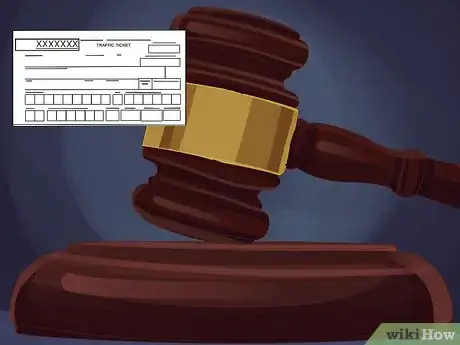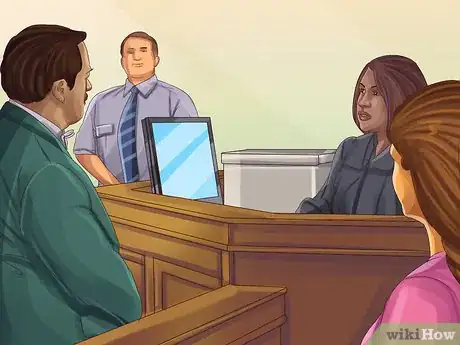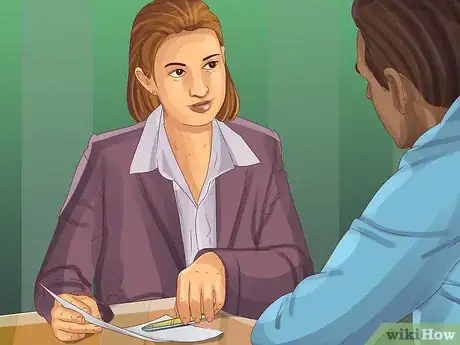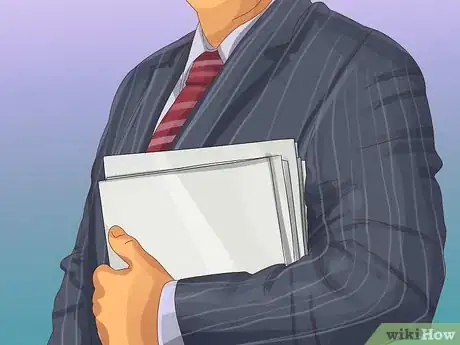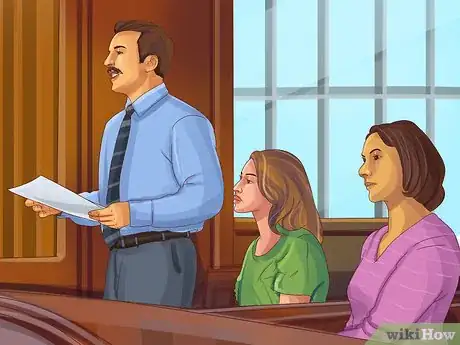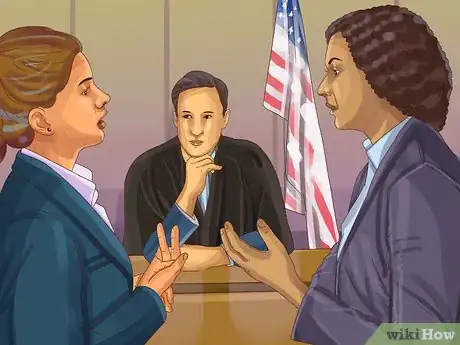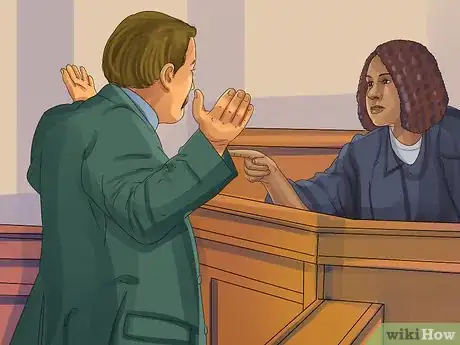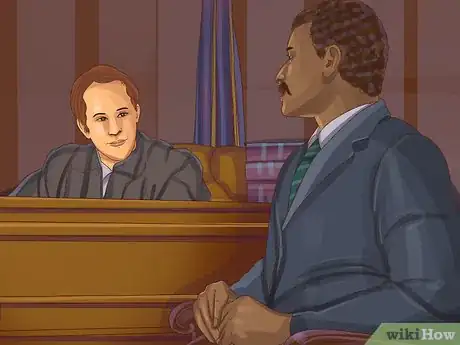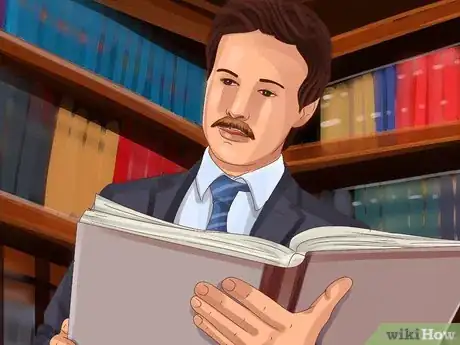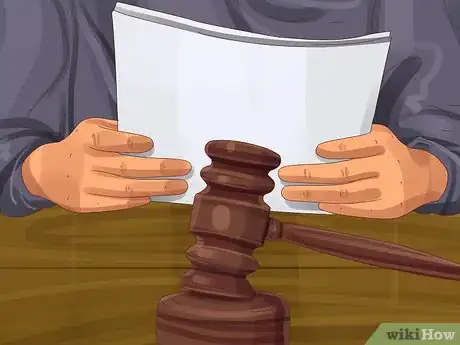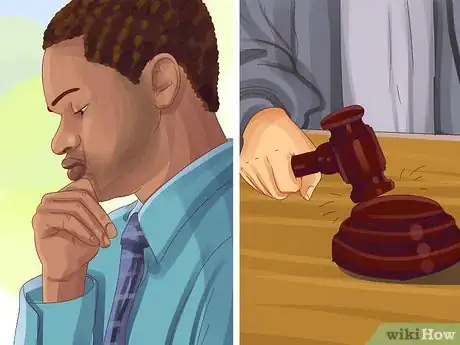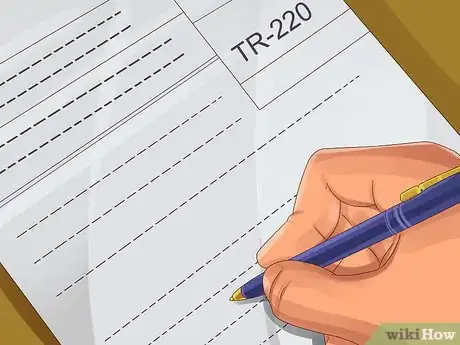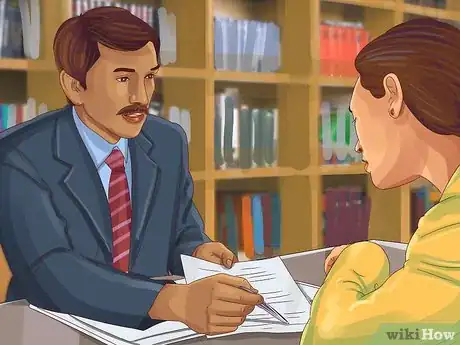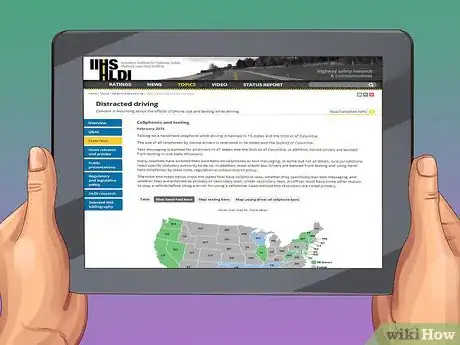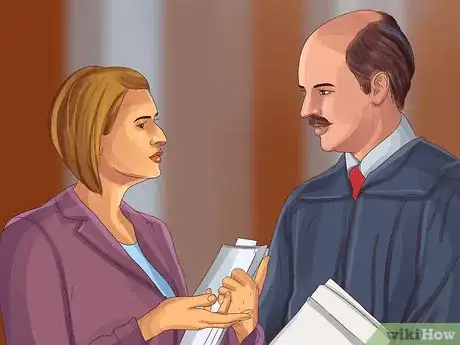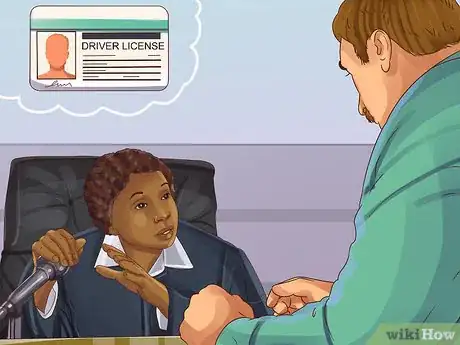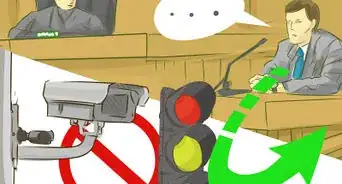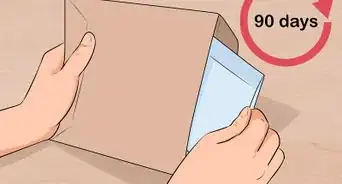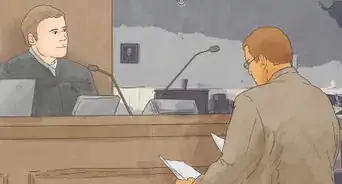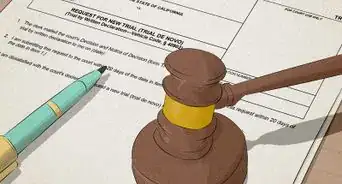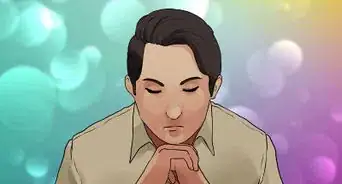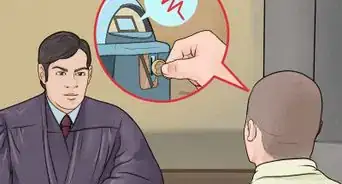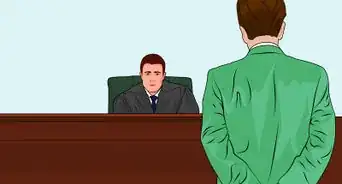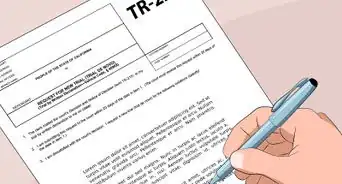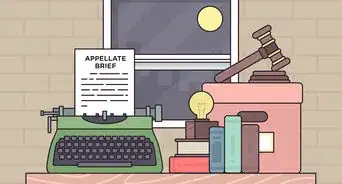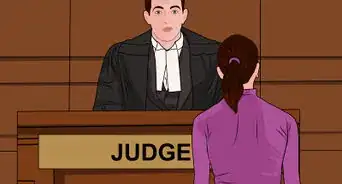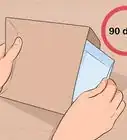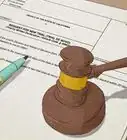This article was written by Jennifer Mueller, JD. Jennifer Mueller is an in-house legal expert at wikiHow. Jennifer reviews, fact-checks, and evaluates wikiHow's legal content to ensure thoroughness and accuracy. She received her JD from Indiana University Maurer School of Law in 2006.
There are 9 references cited in this article, which can be found at the bottom of the page.
This article has been viewed 100,343 times.
Many states across the United States have enacted legislation restricting the use of cell phones while operating a motor vehicle. If you get a cell phone ticket, you face fines as well as points on your license. Even a few points on your license could increase your insurance rates, and with too many points you could lose your license. You can fight a cell phone ticket by going to court and arguing your case before a judge, or writing a letter declaring your innocence. If nothing else, you may be able to negotiate with the prosecutor to reduce the charges.[1]
Steps
Having Your Day in Court
-
1Plead not guilty to the infraction. Your copy of the citation will have information, usually on the reverse side, on what to do if you want to fight the ticket. Read this information very carefully, because you typically have a limited amount of time to plead not guilty.[2]
- In some jurisdictions you have to make a trip to the courthouse if you want to plead not guilty. Others allow you to do it through the mail or even online.
-
2Schedule a trial date. Simply pleading not guilty does not necessarily mean you must appear before a judge. Typically you must request an in-person hearing. The court clerk may assign a date for your hearing, or you may get to choose one from the court's calendar yourself.[3]
- Make note of your hearing date and make sure you'll be available on that date. If something happens and you can't make your court date, you may be able to change it, but it can be difficult to do so.
Advertisement -
3Consult an attorney. You typically don't need an attorney to fight a cell phone ticket in traffic court. Since there's no possibility of you going to jail, you won't be entitled to appointed counsel if you can't afford to hire someone on your own.[4]
- Most traffic law attorneys provide a free initial consultation, which you can use to get some advice on your odds of prevailing at trial.
- If you do decide to hire an attorney, keep in mind that you'll probably pay more in attorney's fees than you would have spent if you'd just paid the fine. However, it may be worth the expense if you don't get any points on your driving record.
-
4Gather evidence for trial. At your hearing, you'll have the opportunity to make legal arguments, introduce physical evidence, and even call witnesses to testify in support of your defense.[5]
- For example, if there was someone with you in the car, you may want them to testify that you weren't on the phone, or weren't texting, when the officer pulled you over.
- Phone records can be used as evidence. For example, if your phone record indicates that no calls were made on your phone immediately before the officer pulled you over, you can present that in court as evidence that your ticket was issued in error and should be dismissed.
- Sometimes the ticket itself can be your strongest piece of evidence. Look over it carefully and make sure there aren't any errors. You may be able to get the infraction dismissed if, for example, your name is misspelled, or the officer misidentified your car.[6]
-
5Go to court on your hearing date. On the date your hearing is scheduled, arrive at court 30 minutes to an hour before the time of your hearing. This gives you time to go through courthouse security and find the correct courtroom.[7]
- Dress appropriately in clean, conservative clothing. You don't necessarily have to wear a business suit, but you should at least dress as though you're going to a job interview.
- Bring along your copy of your citation and any paperwork from the court. If you have documents you plan to present as evidence, bring originals along with at least 2 copies.
- Leave electronic devices at home. If you have to keep your mobile phone on you, make sure you've turned the ringer off. The court will have a list of other items that are not allowed in courtrooms. Check it beforehand so you don't have anything with you that might get confiscated.
-
6Meet with the prosecutor. In some jurisdictions, you'll have a one-on-one meeting with the prosecutor assigned to your case before the trial begins. This meeting typically takes place in a courthouse meeting room.[8]
- If you are supposed to meet with the prosecutor, you can go to the clerk's office and find out where that meeting will take place.
- At the meeting, the prosecutor will discuss the infraction with you. They may offer to reduce the charge if you are willing to plead guilty.
- You can tell the prosecutor about the evidence you plan to present at trial. If you have a strong case, the prosecutor may decide not to take any further action.
-
7Argue your case to the judge. If you don't make a deal with the prosecutor, your case will go to trial. Sit in the gallery of the courtroom until your case is called, then move to the front to present your defense.[9]
- The prosecutor typically will speak first. Look to see if the officer who issued your ticket is there. If they're not, the prosecutor won't have any witnesses against you and you may win by default. When the judge asks for your defense, tell them that the prosecution hasn't proven its case against you.
- Address your arguments to the judge directly, speaking in a loud, clear voice. Refer to the judge as "your honor." Using "sir" or "ma'am" is also appropriate. Avoid arguing with the judge or talking over them.
-
8Ask about your appeal options. If the judge declines to rule in your favor, you can typically appeal the ruling. An appeal isn't a new trial. Your chances of success depend on whether there was enough evidence at trial to justify the judge's decision.[10]
- The court will have "notice of appeal" forms for you to fill out to get the appeals process started. You'll have to pay filing fees, typically a few hundred dollars. If you can't afford the filing fees, you may qualify for a fee waiver.
- If you decide you want to appeal, it may be a good idea to hire an attorney to assist you.
- You usually have a limited time to indicate that you want to appeal. If you want to hire an attorney, you may need to file your notice of appeal first.
Pleading Not Guilty by Mail
-
1Research the law. The officer who pulled you over may not have been entirely familiar with the exact wording of your state's distracted driver law. This can work to your advantage, since when you plead not guilty by mail you're communicating directly with the judge.[11]
- Get a copy of your state's law. You can also go to the public law library (typically located in the courthouse) and search for any appellate court cases that might have interpreted the law. Get the law librarian at the public law library to help you.
- Make copies of anything you find that applies to your situation, or indicates that your ticket should be dismissed. You can include them with your letter to the judge.
-
2Submit a letter to the judge pleading not guilty. If you are allowed to do a "trial by declaration," you can submit a declaration of your innocence in writing and never have to go to court. Many courts have forms you can use.[12]
- Include only facts that are directly relevant to the infraction. Whining about how the ticket should be dismissed because you don't want your insurance rates to go up, for example, won't do you any good.
- If you have any evidence, such as a copy of your phone record or a copy of a case you found with facts similar to your situation, include a copy with your letter.
- One advantage of fighting your ticket this way is that often the officer who issued your citation will not respond. Officers typically are more likely to show up in court than they are to respond to a declaration, which they just see as more paperwork.[13]
-
3Wait for the court's decision. Once your letter is received, the court will submit it to the officer who issued your citation. The officer will have a deadline by which to respond. Then the judge evaluates all the information provided.[14]
- You may have been given a specific date by which the judge's decision will be made. Some courts simply provide you an estimated period of time.
- If several months go by and you haven't received anything from the court, contact the clerk's office to check on the status. Make sure they have the correct address for you.
-
4Request a new trial if you're not happy with the judge's decision. When you have a trial by declaration, you may be able to have a new trial in person at the courthouse. Check the notification of the court's decision to find out your deadline to request a new trial.[15]
- The court will have forms for you to fill out to request your trial. There may be a fee for filing these forms.
- In this trial, the court starts over completely, and will not consider the result of your trial by declaration. You also have the opportunity to introduce new evidence if you have it.
Getting the Charges Reduced
-
1Talk to an attorney. To get a cell phone ticket reduced, you typically need to negotiate with the prosecutor or State's attorney who has been assigned to your case. If you're not comfortable negotiating with an attorney, you may want to hire your own attorney to assist you.[16]
- An experienced local traffic attorney will have worked with the prosecutors before, and will have a good working relationship with them. This can help them work out a better deal than you may be able to get on your own.
-
2Read up on the law in your state. State's attorneys only like to prosecute cases where they feel they have a good chance of success. If you can find something in the law that creates a reasonable doubt, the state's attorney will be more willing to bargain with you.[17]
- For example, in some states the courts have carved out exemptions to the law if you are consulting a map or GPS on your phone while driving. If that's what you were doing when you got the ticket, you may have some leeway you can use to get the charges reduced.[18]
- The Insurance Institute for Highway Safety has a map and table that summarizes distracted driving laws in all 50 states. Go to http://www.iihs.org/iihs/topics/laws/cellphonelaws/maphandheldcellbans?topicName=Distracted%20driving#map and hover your cursor over your state for more detail.
-
3Set up a meeting with the prosecutor. The prosecutor or State's Attorney assigned to your case has the authority to reduce your infraction, let you pay a smaller fine, or even decide not to pursue any further action on your case.[19]
- In some jurisdictions you'll automatically meet with the prosecutor before you appear in court on the date of your hearing. In others, you'll need to call the prosecutor's office directly and find out who has been assigned to your case.
- Some prosecutors will be willing to talk with you on the phone, while others will want you to come down to their office.
-
4Negotiate for a non-moving violation. While you'll still have to pay a fine if you get your cell phone ticket reduced to a non-moving violation, you typically don't get any points on your license for a non-moving violation.[20]
- While you may not consider this "fighting" the ticket (since you still have to pay a fine), you'll save money and stress in the long run. You won't have to worry about your insurance rates going up, or having points on your license.
Warnings
- This article is focused on distracted driver laws in the United States. If you live in another country, consult a nearby attorney who specializes in traffic law to learn more about your options.⧼thumbs_response⧽
References
- ↑ http://www.iihs.org/iihs/topics/laws/cellphonelaws/maphandheldcellbans?topicName=Distracted%20driving#map
- ↑ https://www.jud.ct.gov/Publications/CR161.pdf
- ↑ http://www.occourts.org/self-help/traffic/goingtocourt.html
- ↑ https://www.jud.ct.gov/Publications/CR161.pdf
- ↑ http://www.occourts.org/self-help/traffic/goingtocourt.html
- ↑ http://traffic.findlaw.com/traffic-tickets/deciding-if-fighting-traffic-tickets-is-a-good-idea.html
- ↑ https://www.jud.ct.gov/Publications/CR161.pdf
- ↑ https://www.jud.ct.gov/Publications/CR161.pdf
- ↑ http://www.occourts.org/self-help/traffic/goingtocourt.html
- ↑ http://www.occourts.org/self-help/traffic/appeals.html
- ↑ http://traffic.findlaw.com/traffic-tickets/deciding-if-fighting-traffic-tickets-is-a-good-idea.html
- ↑ http://www.occourts.org/directory/traffic/general-information/citation.html
- ↑ http://traffic.findlaw.com/traffic-tickets/deciding-if-fighting-traffic-tickets-is-a-good-idea.html
- ↑ http://www.courts.ca.gov/34713.htm
- ↑ http://www.courts.ca.gov/34713.htm
- ↑ https://www.jud.ct.gov/Publications/CR161.pdf
- ↑ http://traffic.findlaw.com/traffic-tickets/deciding-if-fighting-traffic-tickets-is-a-good-idea.html
- ↑ http://www.latimes.com/local/abcarian/la-me-0130-abcarian-cell-tickets-20150130-column.html
- ↑ https://www.jud.ct.gov/Publications/CR161.pdf
- ↑ http://www.miami-dadeclerk.com/traffic_civil_infraction.asp
About This Article
To fight a cell phone ticket, you’ll need to plead not guilty and present evidence to support your case. You might be able to do a trial by declaration, which allows you to fight your ticket without appearing in court. If you’re allowed to do a trial by declaration, submit a letter to the judge pleading not guilty. Attach any evidence you have, like a copy of your phone records showing no calls were made at the time or witness reports from people in the car. Then, wait for a response from the judge. If you can’t do a trial by declaration, plead not guilty in court and ask for a hearing. Bring your evidence with you to support your claim and make your case to the judge. For more tips from our Legal co-author, including how to negotiate with the prosecutor before your trial, read on.
